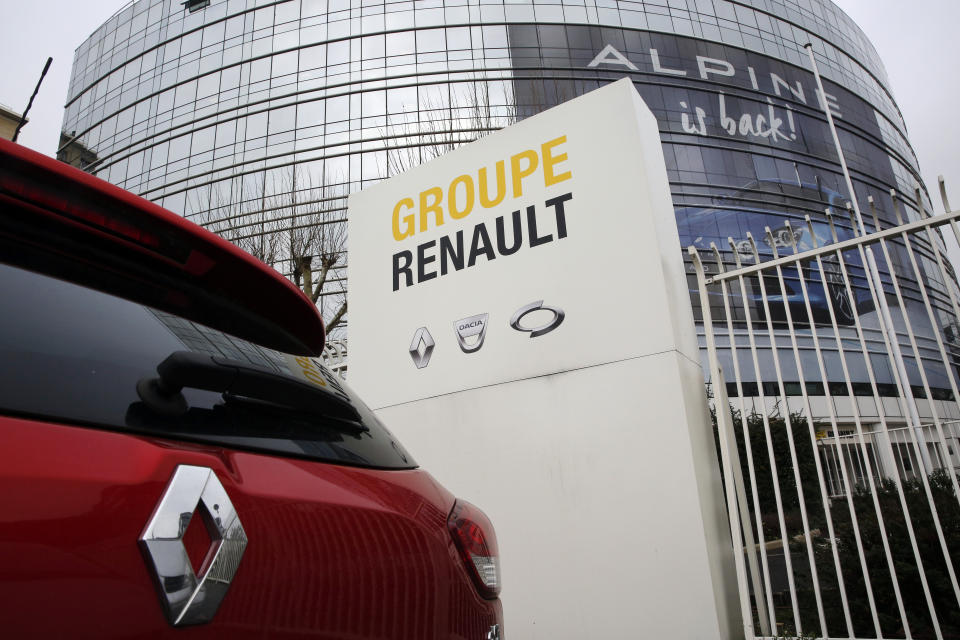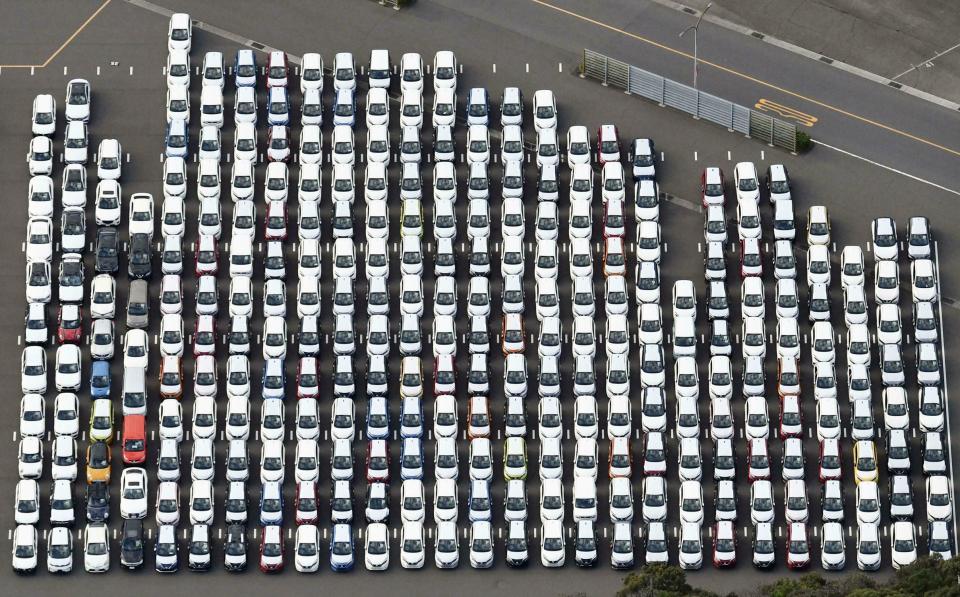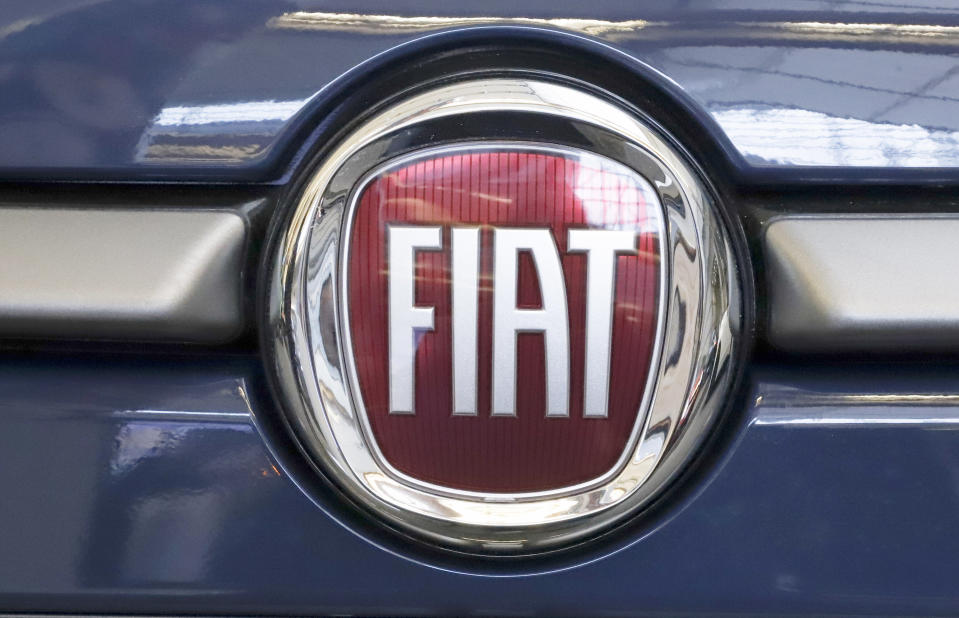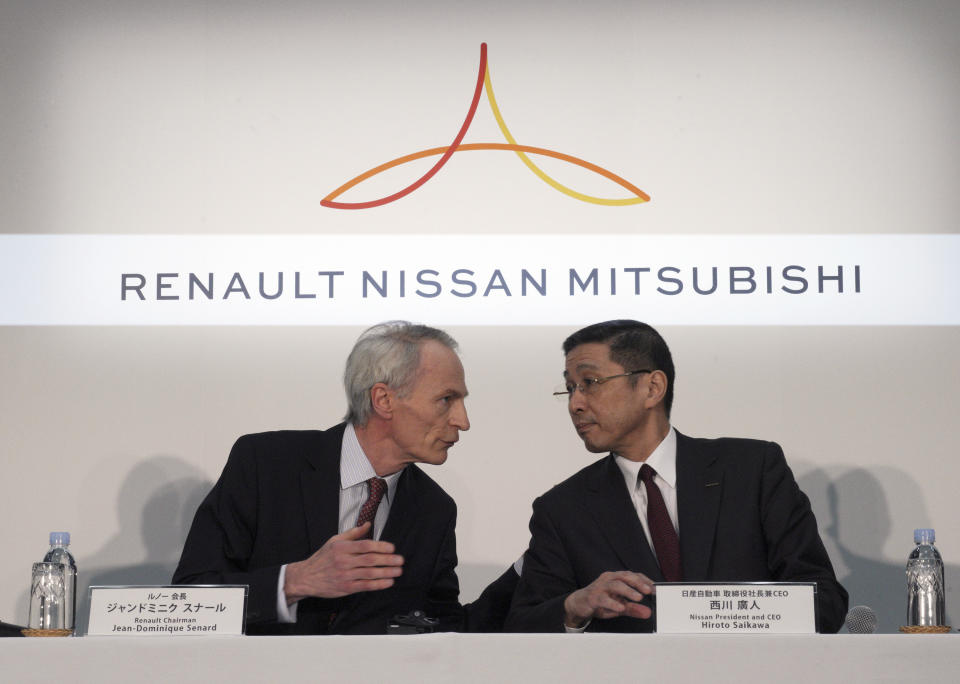PARIS (AP) — Fiat Chrysler abruptly withdrew an offer to merge with French automaker Renault late Wednesday, a shocking reversal of a deal that could have reshaped the global auto industry.
The Italian-American automaker blamed its move on France's government, saying that the country's political climate would stop the tie-up from being successful. The government owns 15% of Renault and would have had to approve the merger.
"It has become clear that the political conditions in France do not currently exist for such a combination to proceed successfully," Fiat Chrysler said in a statement. "FCA will continue to deliver on its commitments through the implementation of its independent strategy."
Officials on each side blamed the other for making demands that caused the deal to fall apart with little hope of revival. The moves came on a tumultuous day in which FCA and the government reached a tentative deal on merger terms but it was scuttled later as Groupe Renault's board met for six hours outside of Paris. The board postponed any action on the merger at the government's request, Renault said.
Fiat Chrysler proposed the 50-50 merger in late May, saying it would save more than 5 billion euros ($5.62 billion) per year in purchasing expenses and costs developing autonomous and electric vehicles. The combined company would have produced some 8.7 million vehicles a year, more than General Motors and trailing only Volkswagen and Toyota. The merger would have created the world's third-largest automaker worth almost $40 billion.
Nissan, which has a longtime alliance with Renault, expressed reservations about the deal. But if it had gone along, it would have created the world's biggest auto company.
Most analysts praised the combination, saying each side bought strengths that covered up the other's weaknesses. Now, the two companies apparently must find a new way to address any shortcomings at a time when the auto industry is in the midst of a global sales slowdown and facing enormous expenses to develop future technologies.
"FCA clearly saw too many obstacles, primarily Nissan's reluctance," said Kelley Blue Book Executive Publisher Karl Brauer. "Given the longstanding relationship between Renault and Nissan, it's hard to imagine the merger working without Nissan's full support."
The scuttled deal won't stop consolidation talks from continuing in the auto industry, Brauer said.
A person with ties to Fiat Chrysler said the talks were going great until the government got involved, continuing to push job security and other demands even after the initial deal was reached. The person didn't want to be identified because details were not included in the company's official statement. The person said Renault and its alliance partners Nissan and Mitsubishi, were "all in" on the deal.




